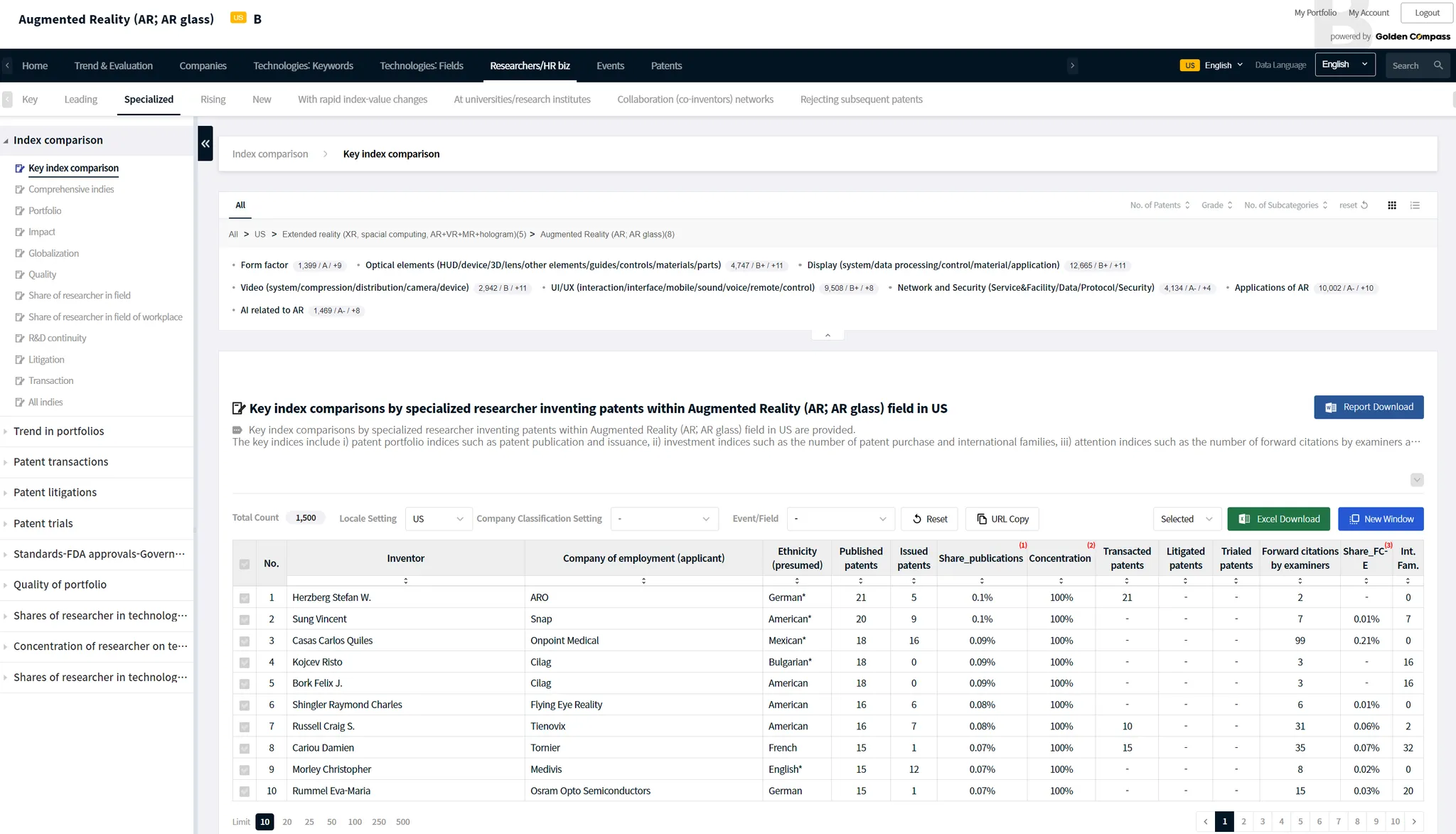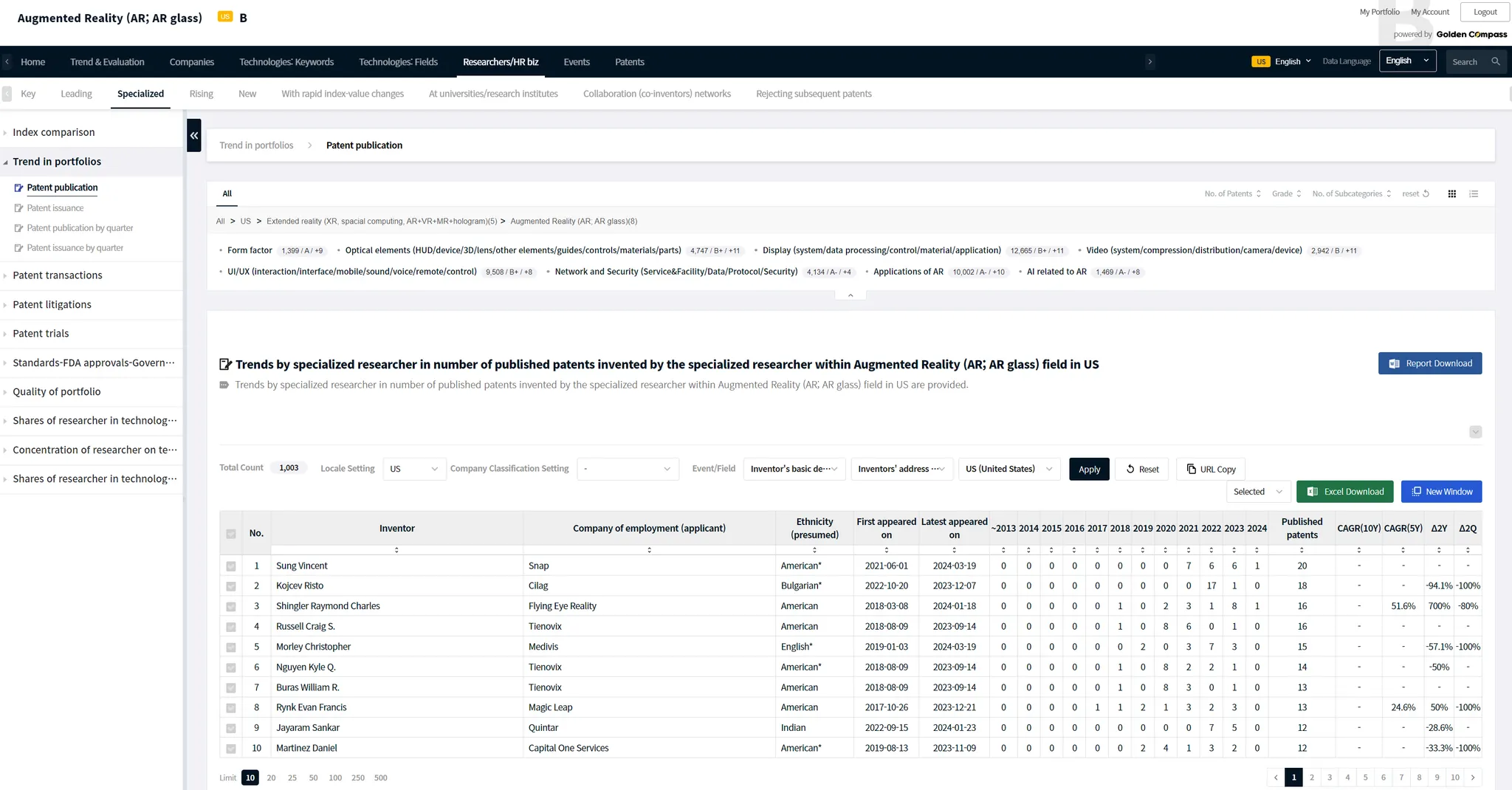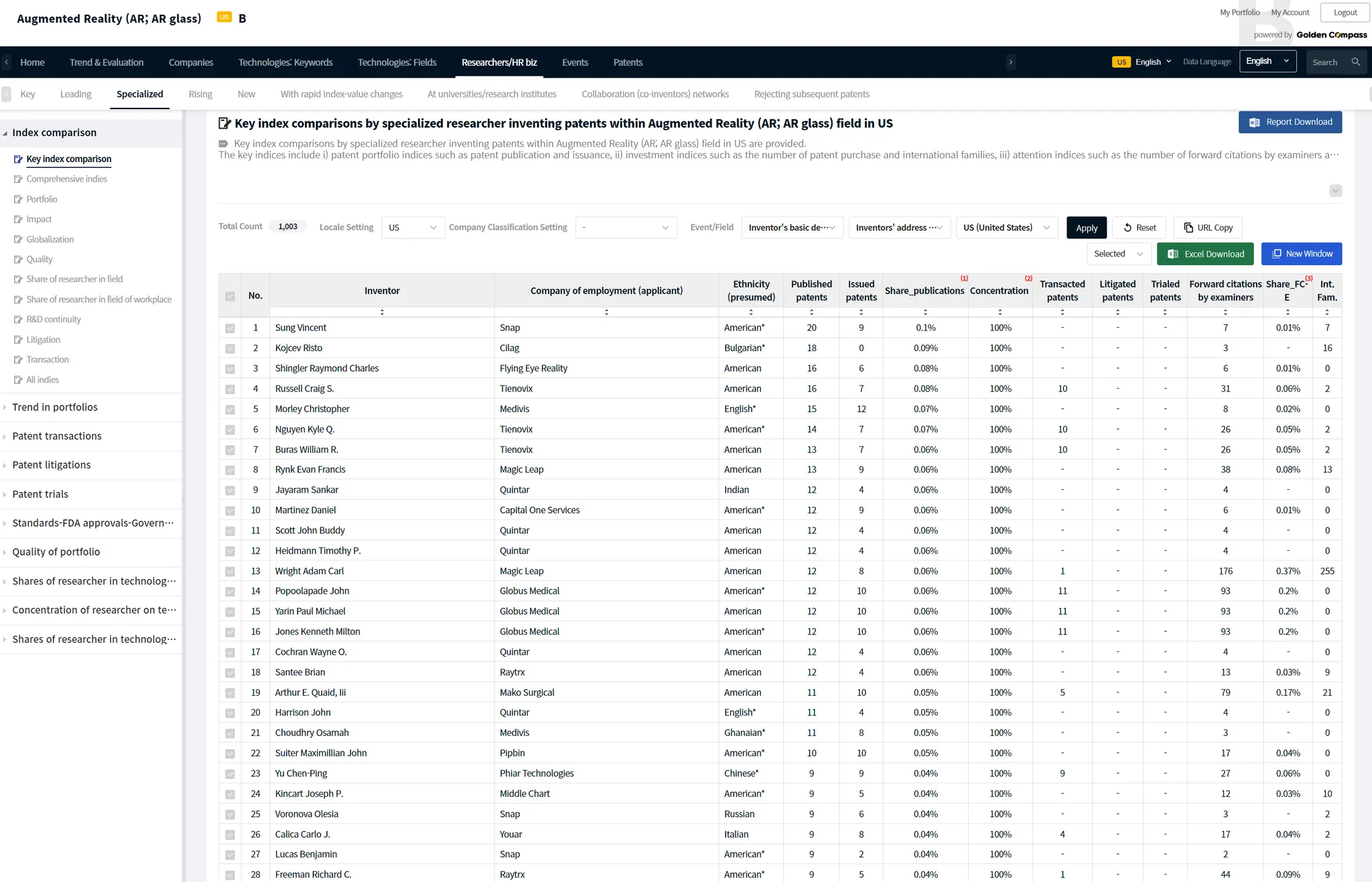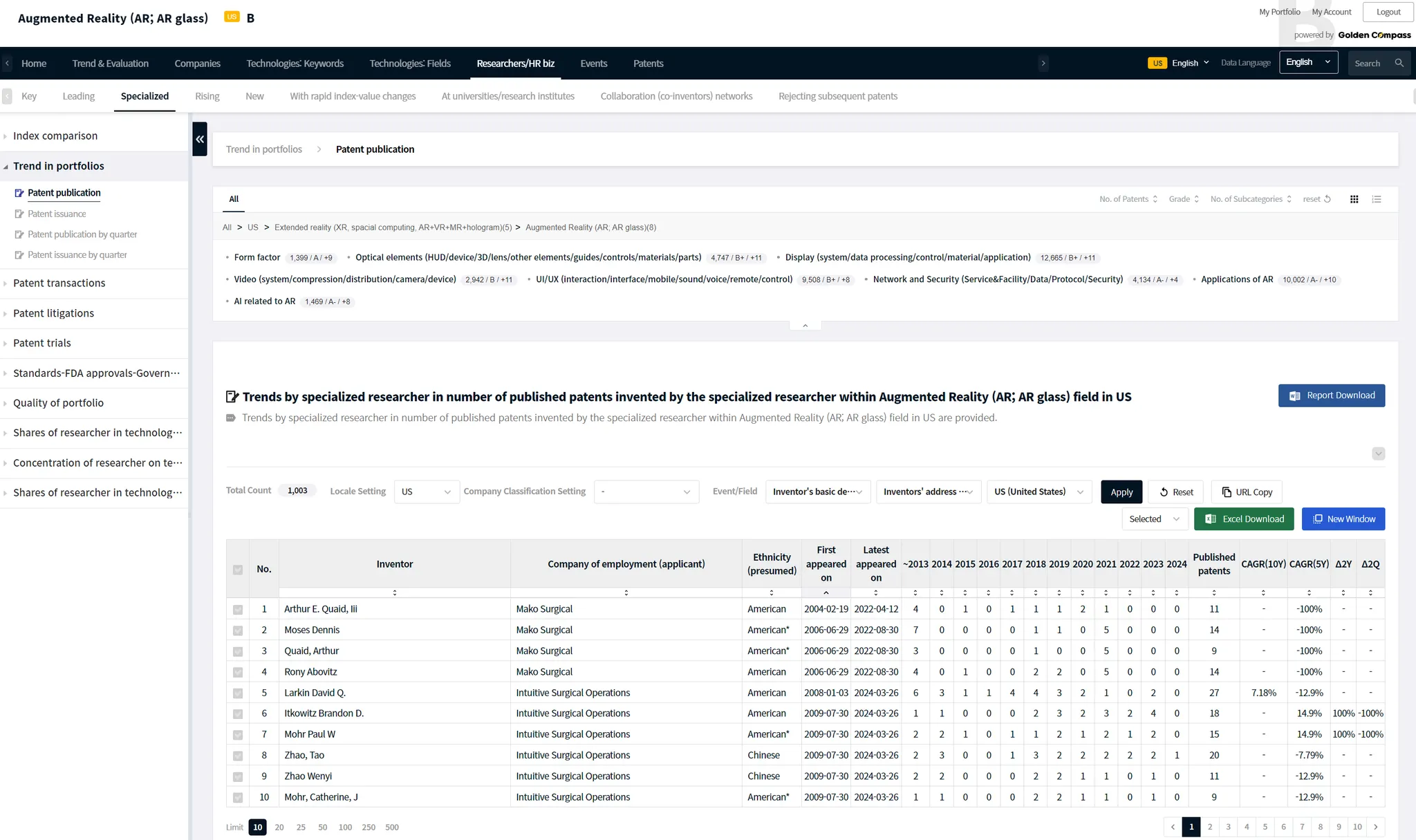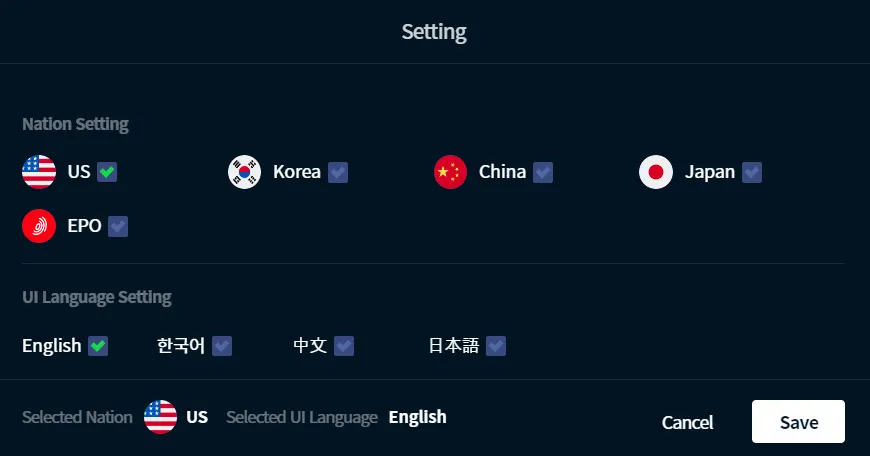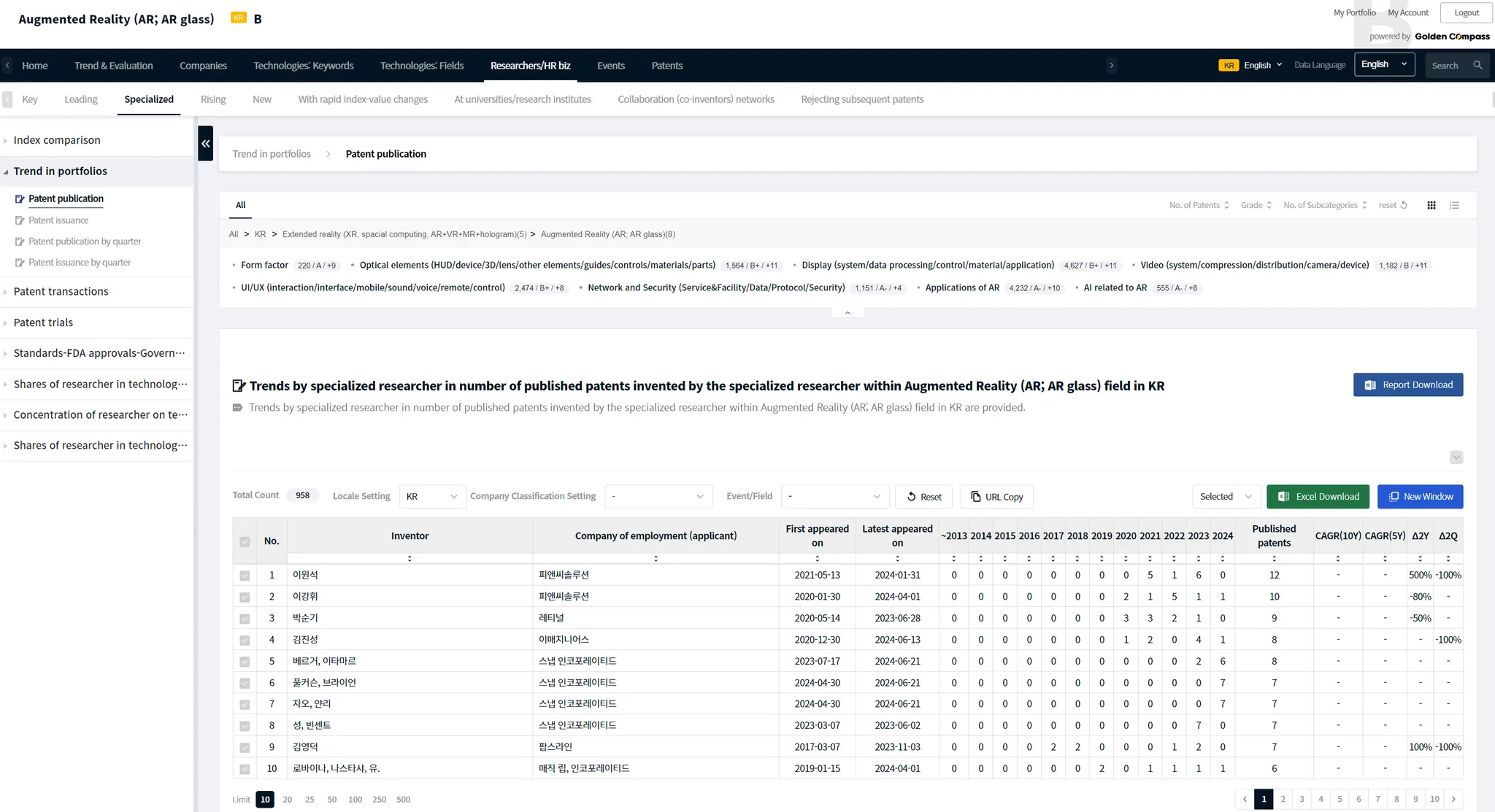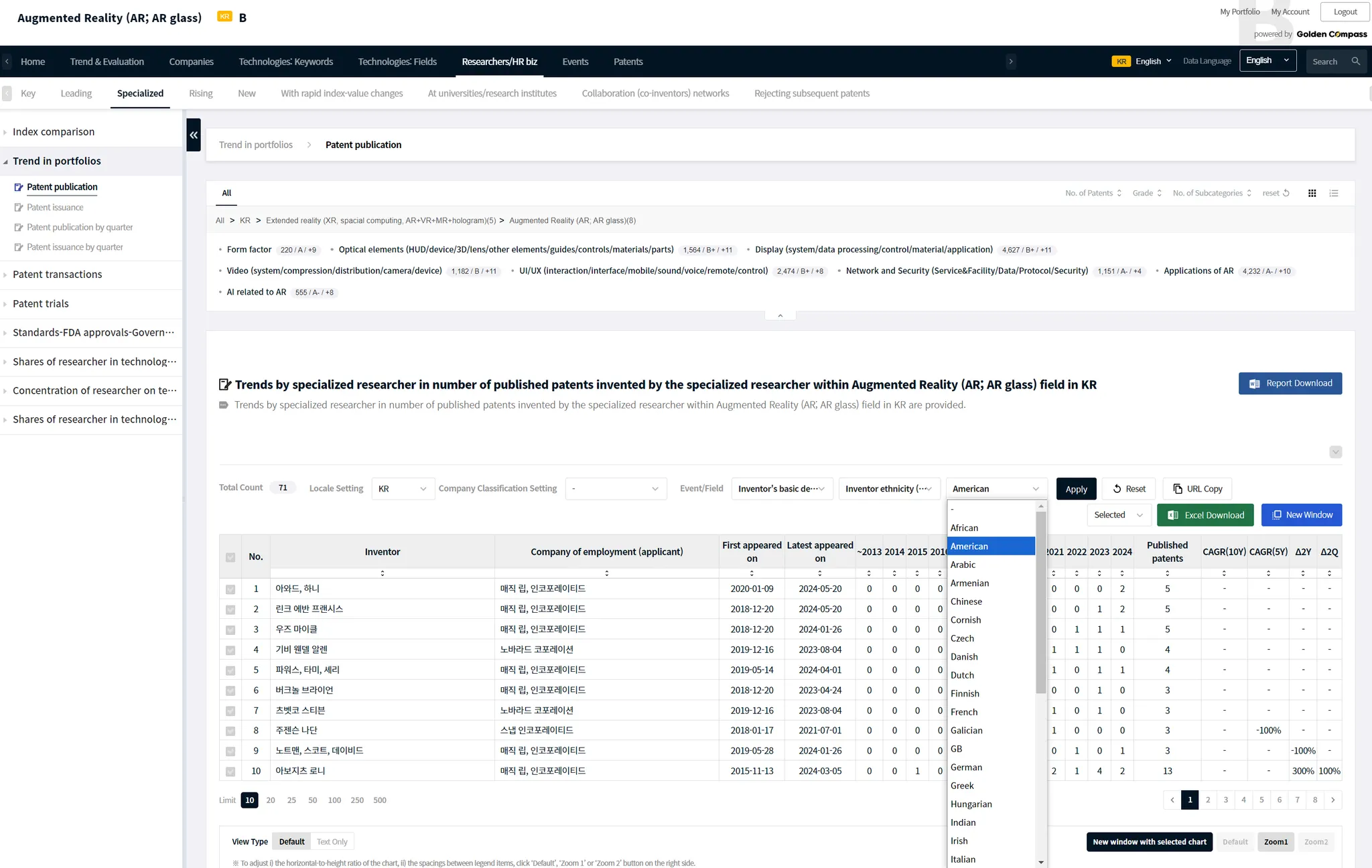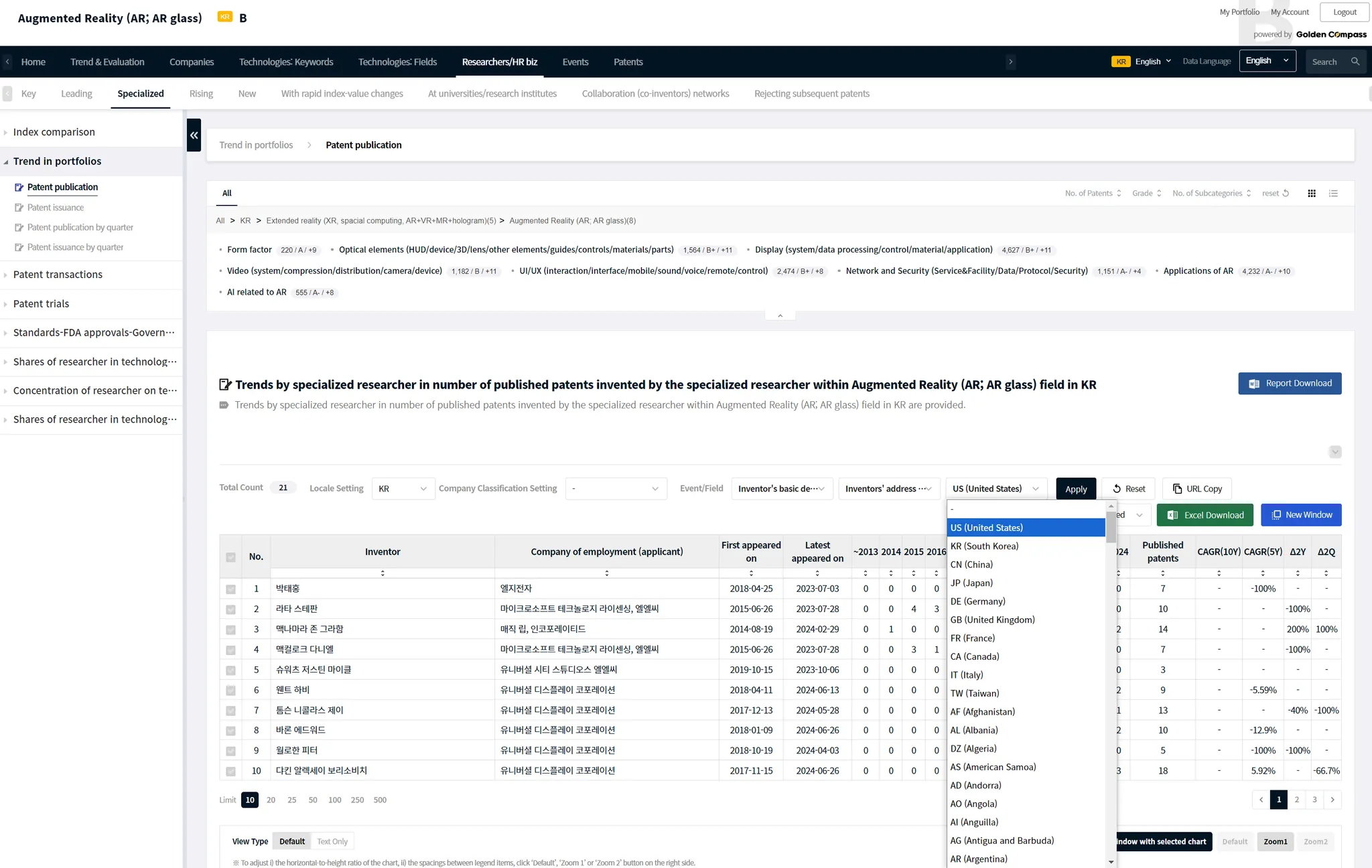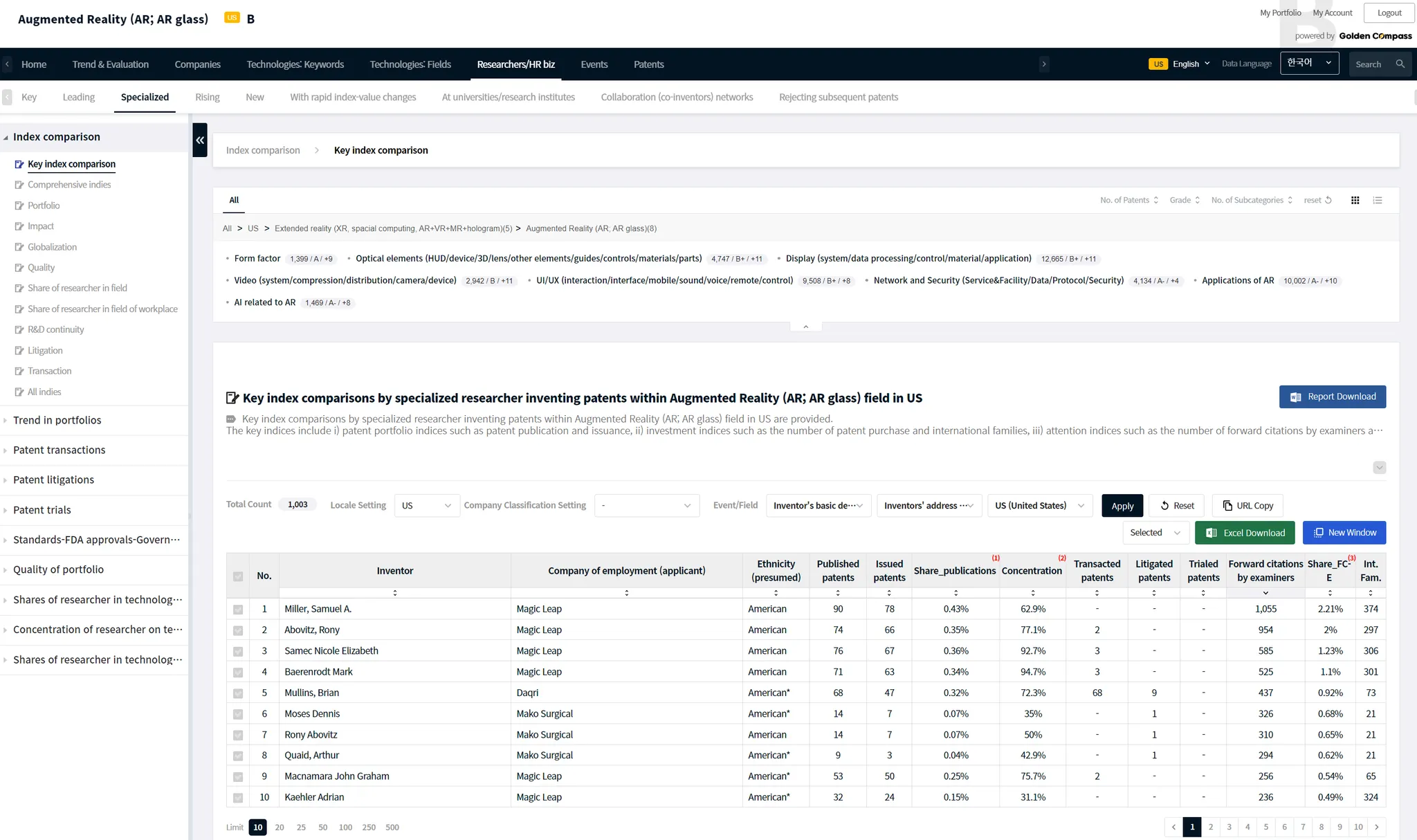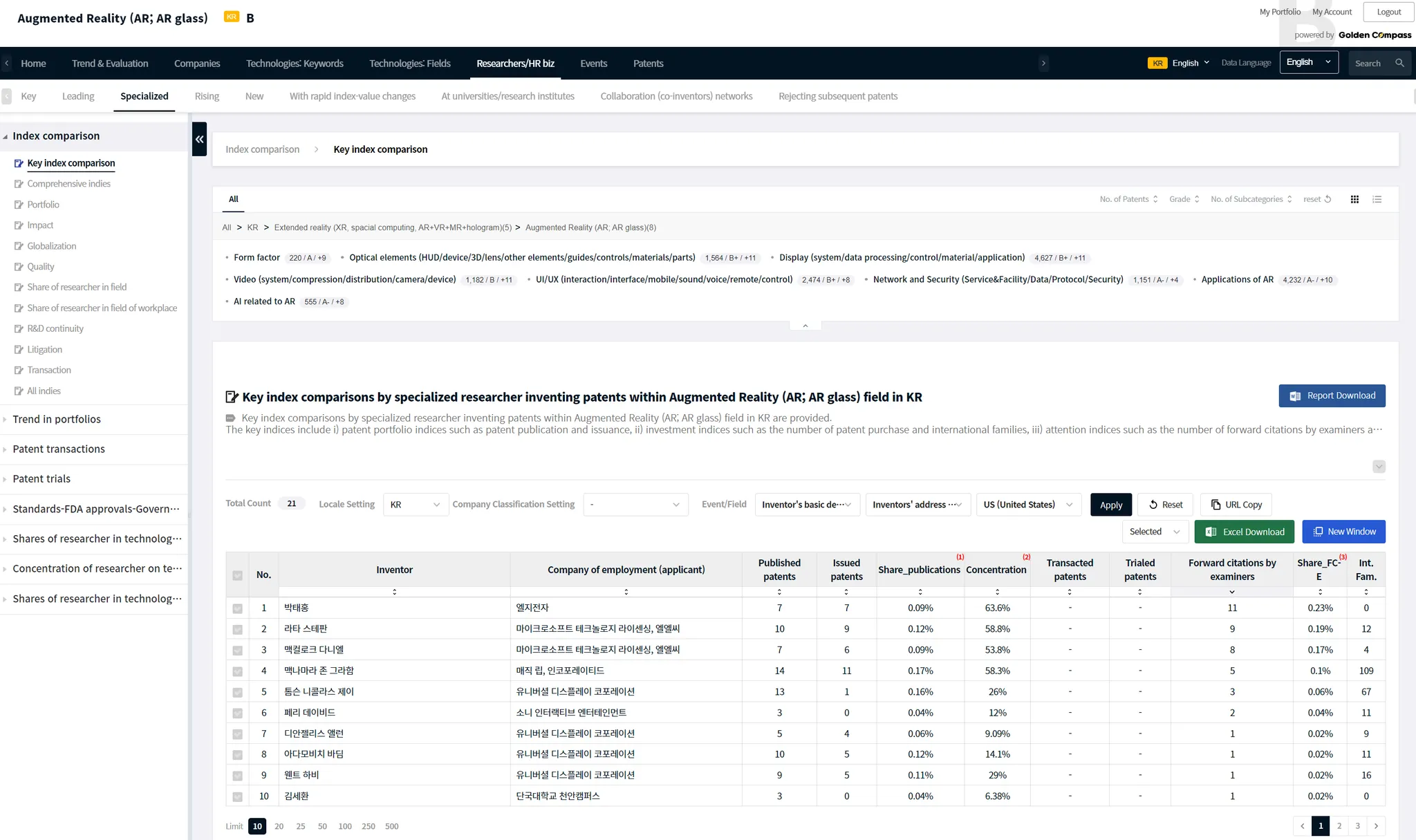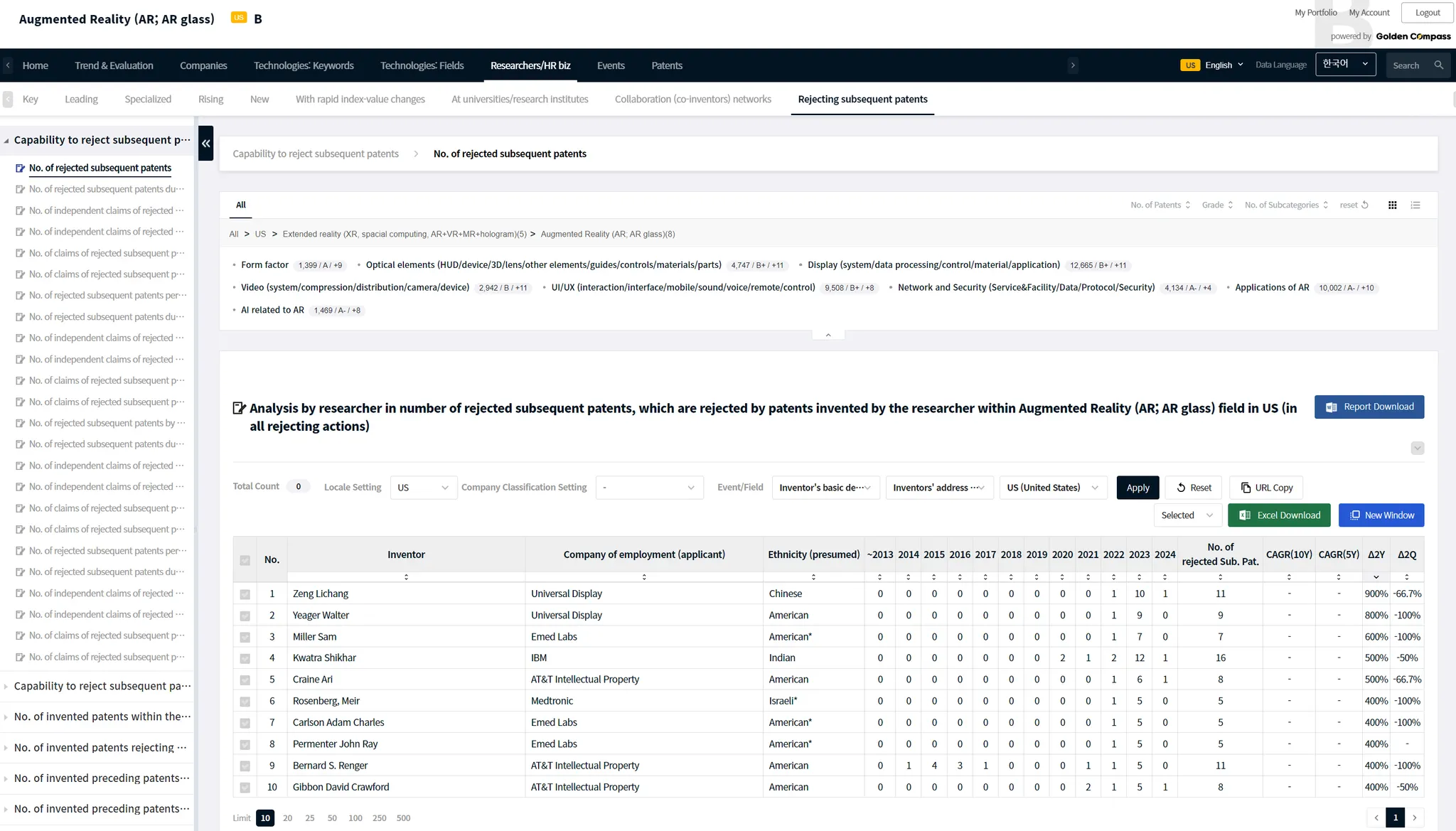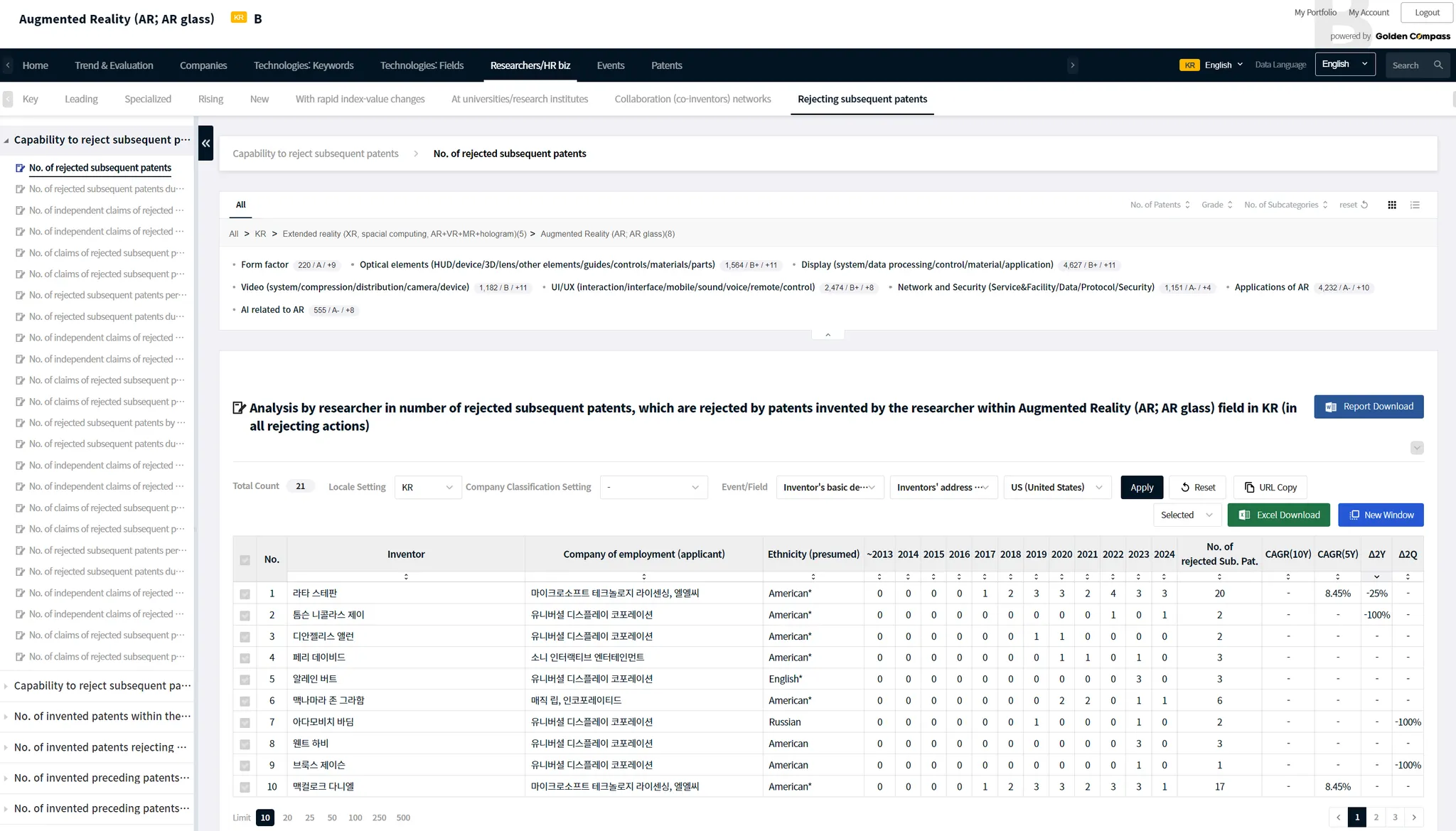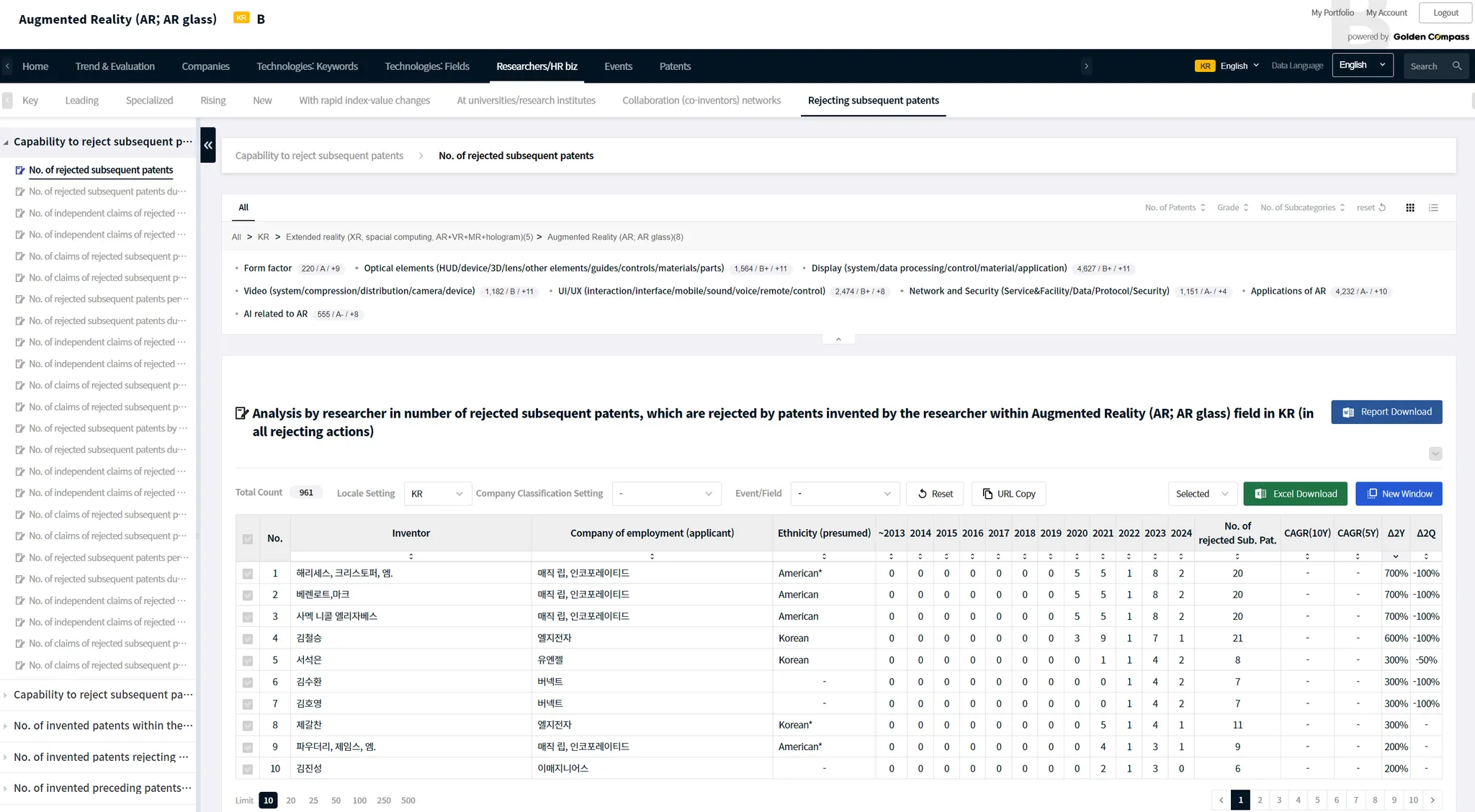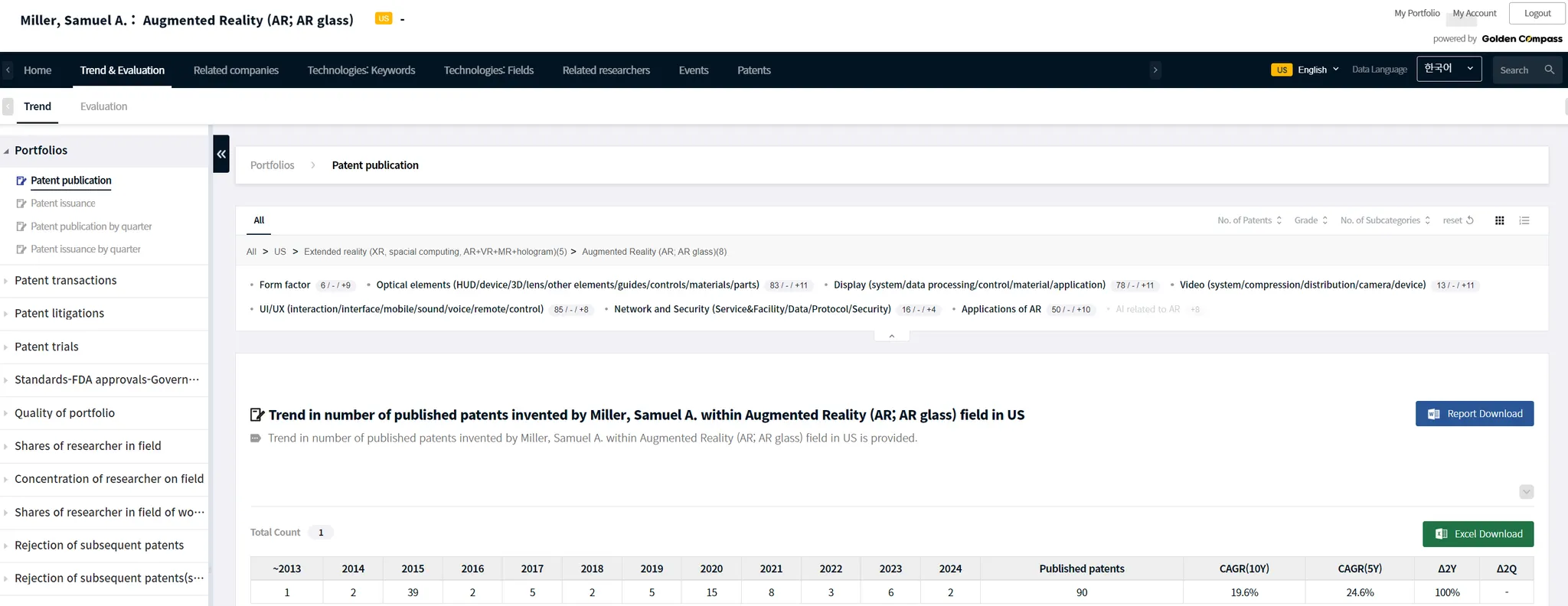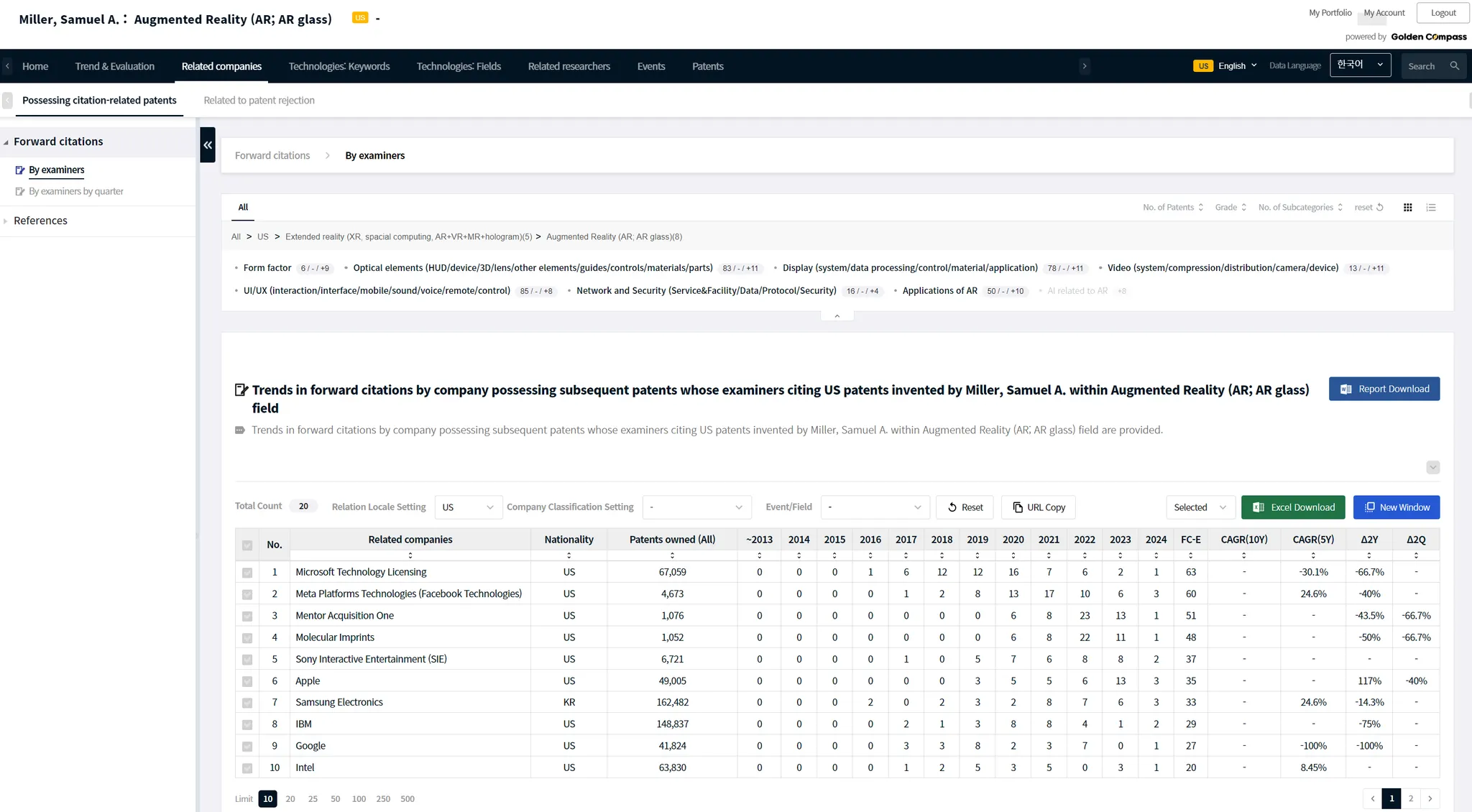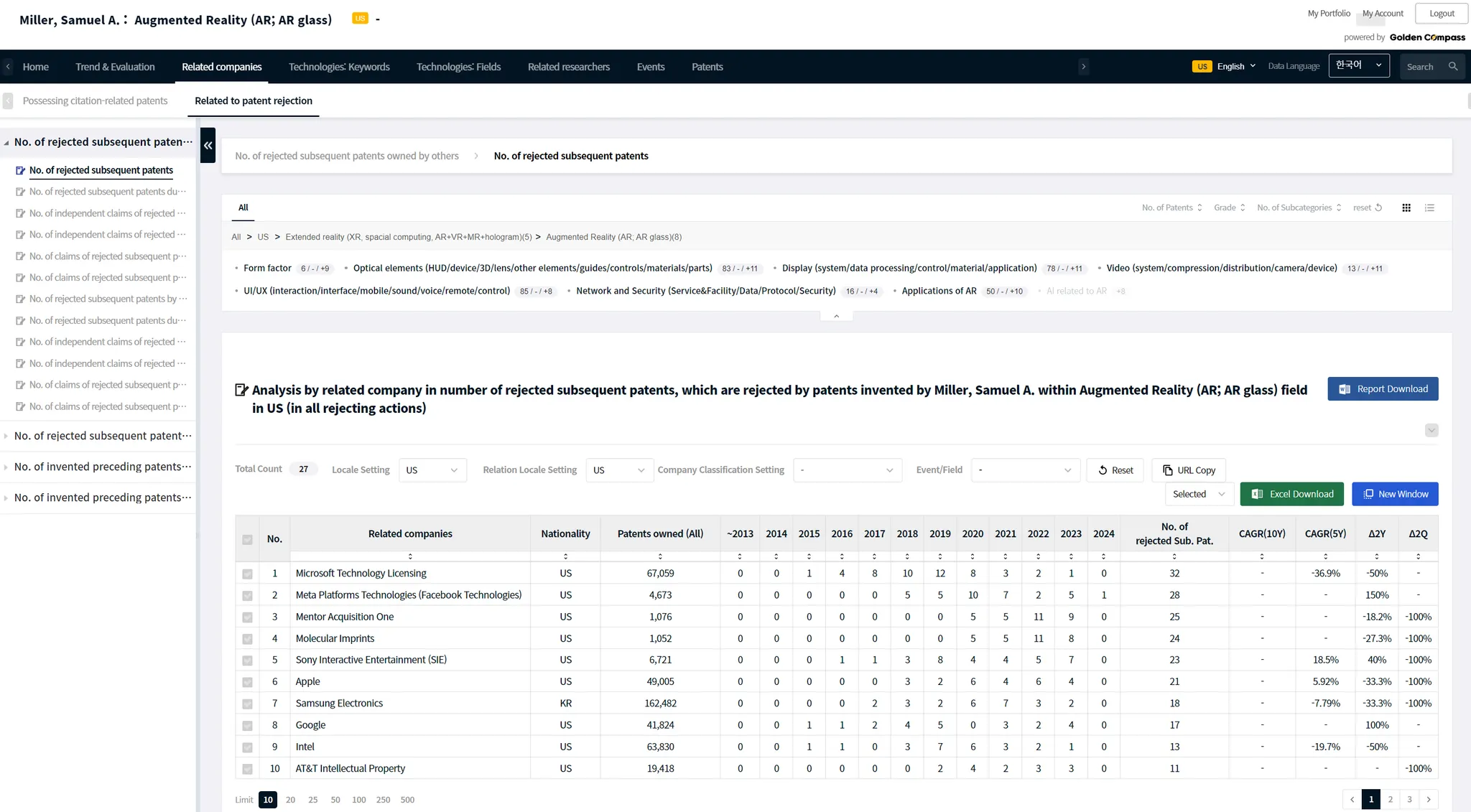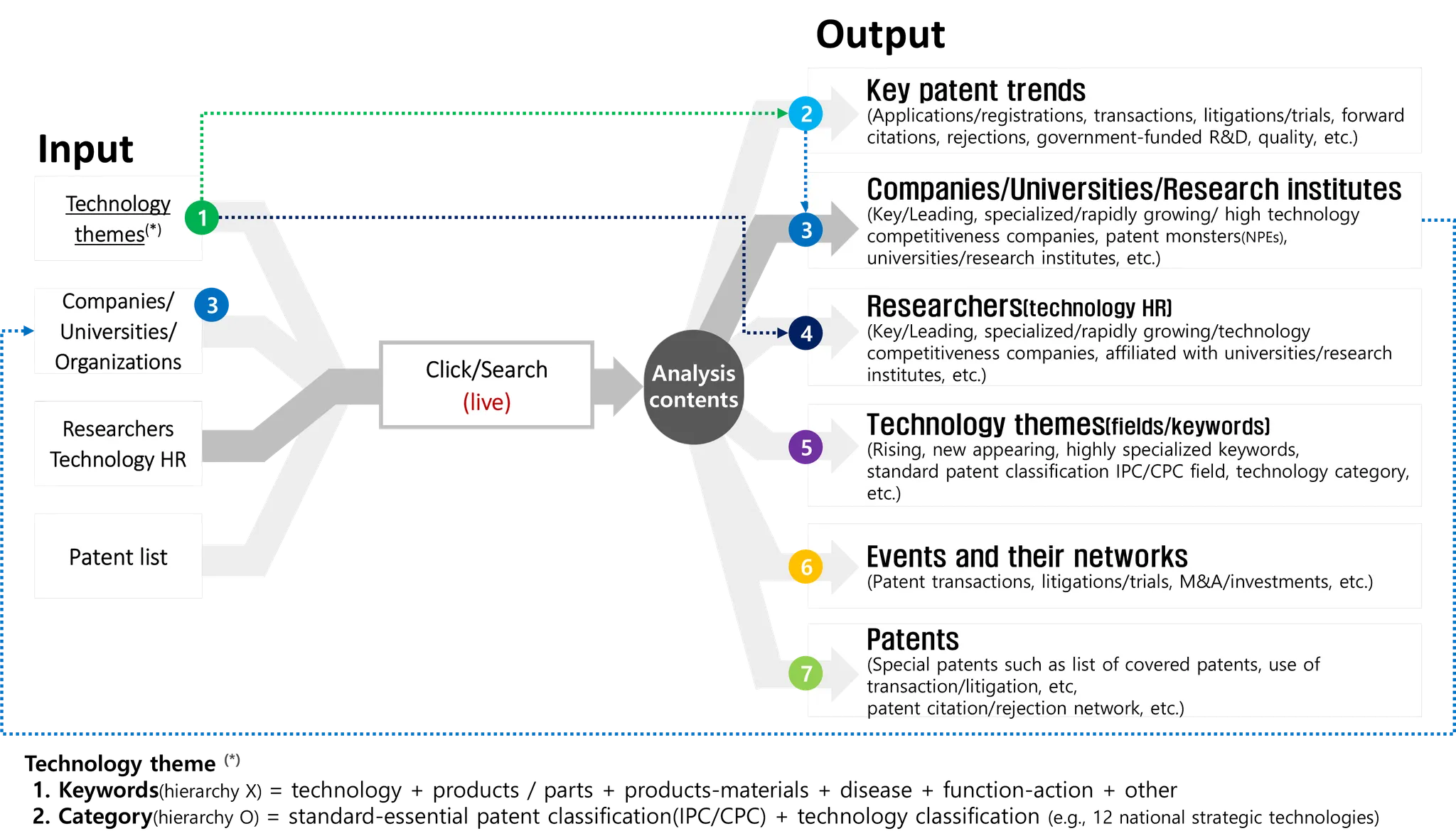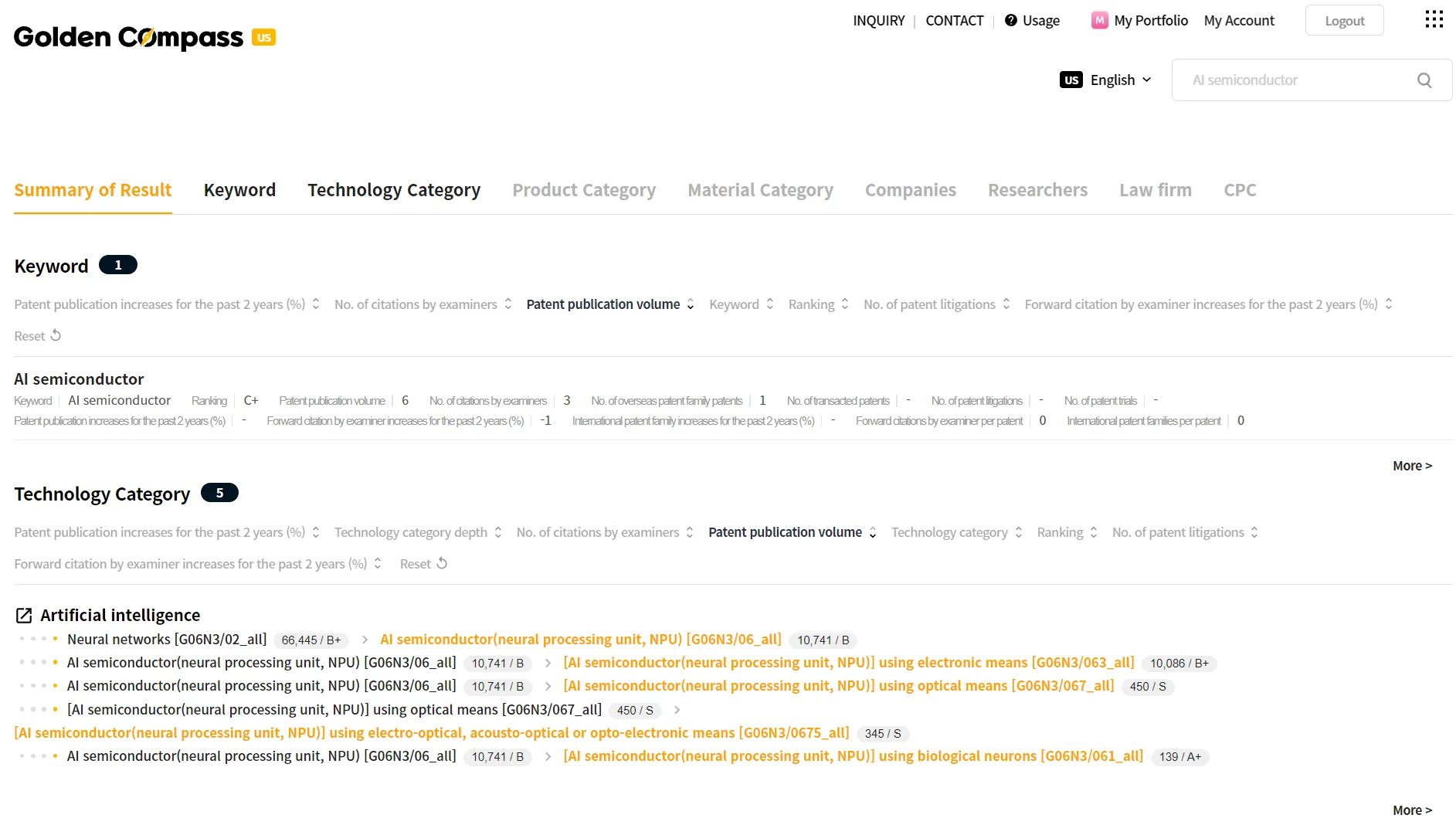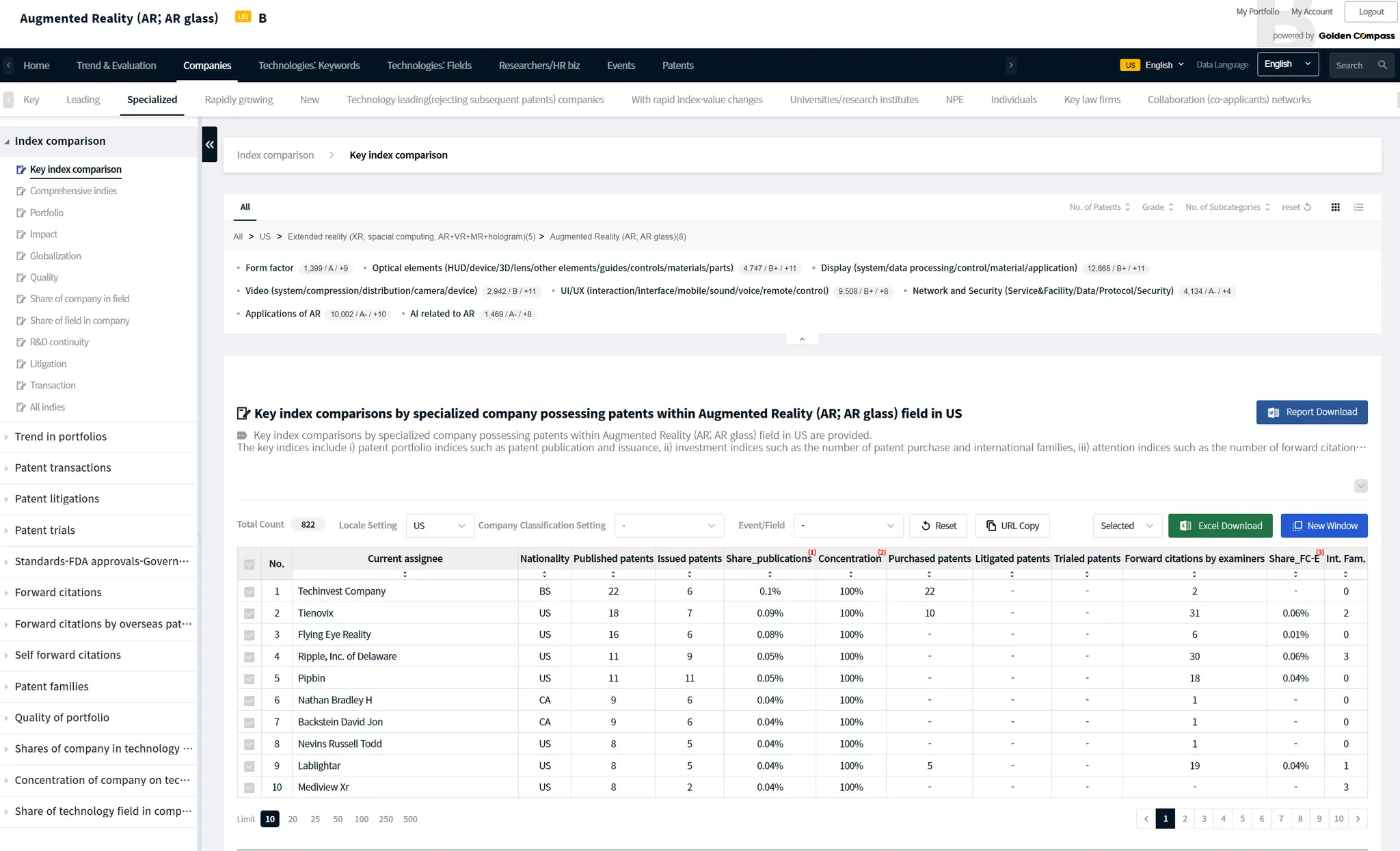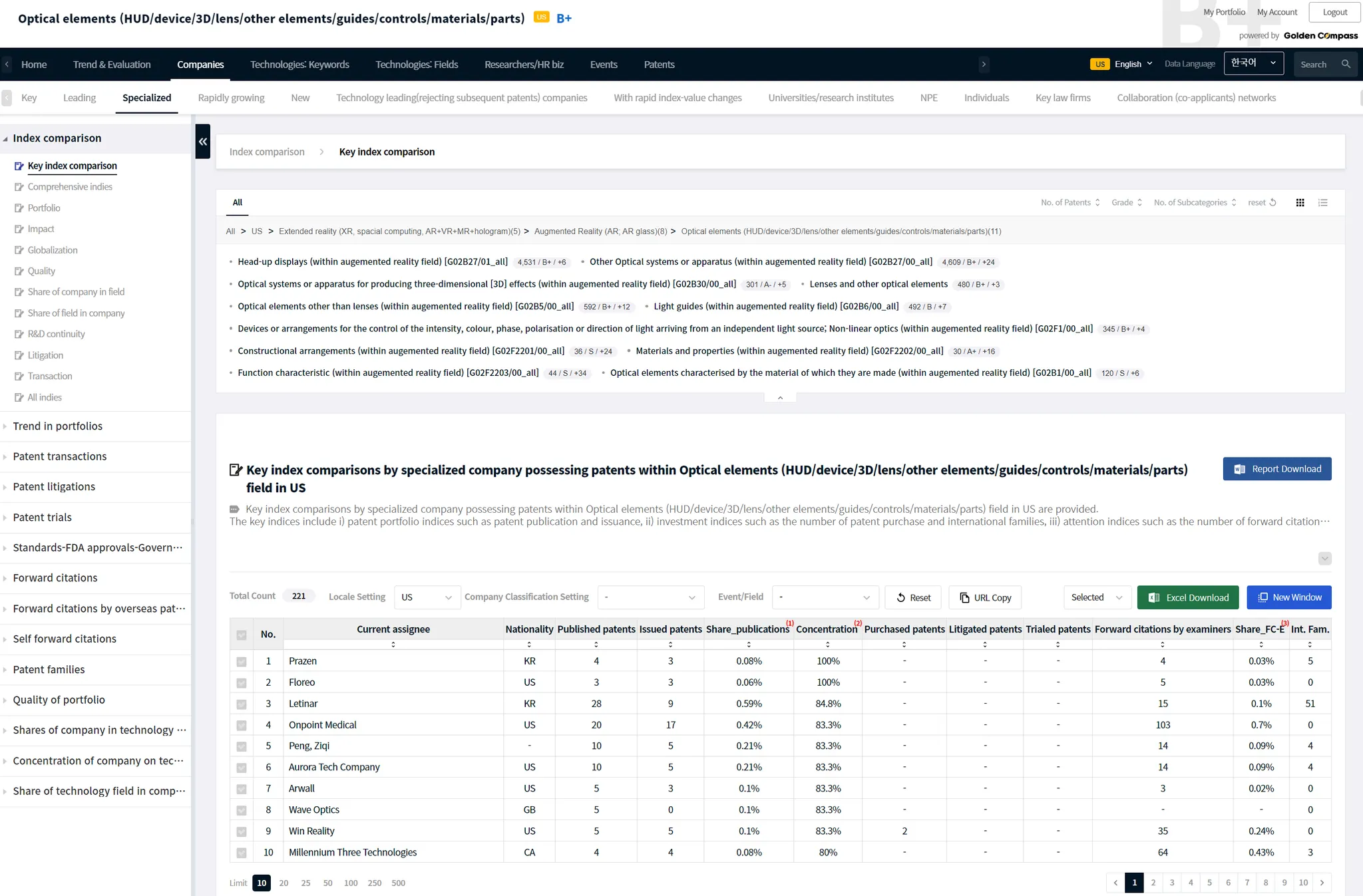Specialized researchers contents page
The example below is a GoldenCompass page for specialized researchers who are focused on augmented reality (AR), an example of a technology field.
For reference, specialized researchers are researchers (inventors) who are focused on a technical field, i.e., the majority of their invented patents are patents related to field.
GoldenCompass provides information about specialized researchers in a given technology field (shown in the top left corner of the page) under the ‘Researchers/HR biz’ 1 depth menu → ‘Specialized Researchers’ 2 depth. 3 In the depth menu, you can make a comparison with researchers' indices for each researcher. In the index comparison, you can see that all researchers on the page have a concentration rate of 100%. A concentration rate of 100% means that 100% of the patents invented by these researchers are patents related to field.
Basic actions on the specialized researchers page
Select the 3 or 4 depth menu
If you click on the 3 or 4 depth menu on the left(e.g. Trends in portfolios, etc.), you will see the following time series analysis.
Zoom in on the list of companies that appear on 1 page
At the bottom of the table, under “Limit number of outputs”, selecting “50” for example will output 50 researchers.
Sorting
You can choose to sort based on specific fields.
Find inventors who have been researching for a long time
In the table related to trends, there is a “day of first appearance”. Researchers with a very recent first appearance date mean that they have only recently started inventing patents related to field (in their research organization). On the other hand, researchers with an older first appearance date mean that they have been inventing patents related to field (in their research organization) for a long time. The closer the recent appearance day is to the current, the more persistent the R&D is.
In the example below, we can see that Arthur E. Quaid, lii(from Mako Surgical) has been inventing patents related to field steadily from 2004 to 2024.
Use the inventor nationality filter to select only researchers with United States nationality
Using a filter, you can select only researchers with United States nationality based on their address for analysis. In the example above, you can see that ‘Inventor basic details’ ⇒ ‘Inventor’s address country’ ⇒ ‘US(United States)’ is applied.
Change nation_patent activity in Korean Intellectual Property Office
To change your nation, select the “Nationality-Language” selection UI shown below in the top right corner.
The current setting is “United States(US)” to view information in English UI. Select “V” to display the current setting.
If you select the nation as KR and click OK, specialized researchers related to AR in Korea will appear.
Selecting only researchers from United States in a changed nation
Using the filter, you can select only United States researchers for analysis among specialized researchers with multiple patents in possession in Korean Intellectual Property Office.
GoldenCompass offers ethnicity filters to help you power your HR/Recruiting biz. Ethnicity(e.g., Korea, Japan, China, India, German, etc.) is estimated by a person's first name (last name + first name) using an AI model.
Researchers of US ethnicity can be selected by ‘Inventor basic details’ ⇒ ‘Inventor ethnicity (presumed)’ ⇒ ‘United States’.
Select only researchers of United States nationality from the changed nation
Using the filter, you can select only specialized researchers whose address is United States who have a large number of patents in possession from the Korean Intellectual Property Office for analysis.
GoldenCompass offers a nationality filter based on inventors' addresses that can help boost your HR/Recruiting biz. Researchers from United States can be selected by ‘Inventor basic details’ ⇒ 'Inventor’s address country' ⇒ 'US(United States)'.
Simple patent technology competitiveness comparison
Patent technology competitiveness is measured by i) No. of patents in possession (open/registered) as a quantitative indicator, ii) No. of forward citations by examiners as a qualitative indicator of receiving multiple citations from subsequent patents, and, as an important qualitative indicator, iii) No. of rejected subsequent patents, which quantifies the extent to which subsequent patents are used to reject subsequent patents in the examination of subsequent patents.
The page below shows the trend of No. of forward citations received by patents in possession by specialized researchers of United States nationality in field of AR.
(examiner)No. of forward citations by examiners
You can see even more researchers by selecting 50 to 500 under ‘Limit’ at the bottom of the table.
Let's change the nation to Korea, and analyze researchers of US nationality whose invented patents have many citations.
No. of rejecting subsequent patents
The page below shows the trend of No. of rejecting subsequent patents by researchers who invented patents related to field of AR. The trend of No. of rejecting subsequent patents by researchers is sorted in descending order by the recent 2-year growth rate, Delta_2Y.
You can see even more researchers by selecting 50 to 500 under ‘Limit’ at the bottom of the table.
Let's change the nation to Korea, and analyze researchers of US nationality nationality whose invented patents are rejecting many subsequent patents.
For reference, if we release the nationality filter, we get the full list, which looks like this.
Analysis of individual researcher
Select individual researcher
If you select “Miler, Samuel A.(from Magic Leap)” on the No. of forward citations by examiners page above, the analysis information for ‘AR’ field of “Miler, Samuel A.” appears as shown below. You can see that this page is “Miler, Samuel A.”s field is ‘AR’ in the top left corner of the page.
Companies related to patents in individual researcher’s specific field
Information about companies with subsequent patents in possession citing(examiners) patents related to field of individual researcher or rejecting subsequent patents in possession.
Companies with subsequent patents in possession that cite
Companies with rejecting subsequent patents in possession
Detailed analysis contents for individual researcher
For reference, we present the overall service flow of GoldenCompass. The detailed analysis contents for one company is as follows with one company/university/organization as input in the figure below
PatentPia GoldenCompass, when clicking on an item, such as company, technology, researchers, etc., through search or link, etc., provides, for the selected item (e.g., company Apple), such as i) Trends analysis, ii) Company analysis, iii) Technology analysis, iv) Researchers analysis, v) Event analysis, vi) Patent list, etc. Try clicking on one of the many links in the previous sentence.
If we schematize it around inputs and outputs, looks like this.
(note)Change the technology field
Above, we found researchers in Korea and the United States that are specialized in the technology field of AR.
Search for technology field
Search from the GoldenCompass main screen
In the top right corner of the GoldenCompass main page, shown below, there is a search box for entering search terms.
Clicking the search bar will bring up a UI where you can enter your search term.
The search results will bring up a page like the one below.
As search results, keywords, technology categories, and more will appear. It is recommended to select the one that has a high match to the search term you entered and has a high No. of patents.
www.patentpia.com Searching from the main page
You can enter a search term through the search term input UI on the top right corner of the main page of www.patentpia.com의, as shown below.
Searching from analysis result pages
On the top right corner of every analysis result page, there is a search bar. Enter your search term in the search bar.
Selecting technology subfields
If there are sub-technology fields, such as technology categories or CPC patent classifications, you can select a subfield. The sub-technology fields for a specific technology field are located between the menu UI and the analysis results table. In the example below, you can see that the subfields of the AR field are “Form Factor,” “Optical elements,”...etc.
Before selecting the technology subfields
After selecting technology subfields
Select 'Optical elements' as a subfield of the AR field.
As shown on the page above, if a specific technology field is not an end node, the technology subfields directly under the selected subfield will appear.
